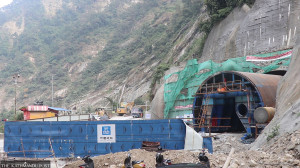Money
Caan clips airlines’ wings for violating safety rules
The Civil Aviation Authority of Nepal (Caan) has demoted two airlines to cargo flights and issued shortened Air Operators Certificates (AOC) to a few others for violating safety regulations.
Sangam Prasain
The country’s aviation regulator said that Sita Air and single-engine operator Air Kasthamandap had been barred from carrying passengers due to major safety issues and neglecting international safety standards. Their AOCs have been revalidated for a year but only for cargo flights.
According to Caan, Sita Air did not have enhanced ground proximity warning system on its planes and did not fulfil the required paperwork. The ground proximity warning system provides a timely and distinctive warning to the flight crew when the plane is too close to the ground.
Likewise, Simrik Airlines has been banned from flying on instrument flight rules (IFR) that permit an aircraft to operate in instrument meteorological conditions. Its aircraft have to fly on visual flight rules (VFR) meaning they can fly only when the weather is clear. Simrik’s AOC has been extended for five months while the AOC of its helicopter has been renewed for three months. Similarly, Fishtail Air’s AOC has been renewed till October 2014. Meanwhile, Caan renewed the AOCs of Makalu Air, Shree Airlines, Mountain Helicopters, Nepal Airlines, Goma Air and Air Dynasty for a year.
Buddha Air, Yeti Airlines and Tara Air were the only airlines to get their AOCs revalidated for one year by the July 16 deadline set by Caan as their documents satisfied the level of compliance prescribed by the International Civil Aviation Organization (Icao).
Caan’s Deputy Director General Sanjiv Gautam said that some carriers were downgraded as they failed to satisfy the regulator with sets of safety standards.
“Caan has taken strong corrective action to enforce compliance. It has ordered the downgraded carriers and those that failed to get their AOCs fully revalidated to follow the standard practice in accordance with the findings of Caan’s audit before applying for passenger service or extending their AOCs.”
On July 16, Caan had granted a temporary reprieve to 16 domestic airlines failing to comply with international safety standards and renewed their AOC for a one-month period under the direct orders of Tourism and Civil Aviation Minister Bhim Prasad Acharya.
The carriers have been let off under the condition that they fulfil the safety oversight standards prescribed by Caan’s new AOC Regulation.
As Icao and the European Commission (EC) have raised questions at the way Nepal’s aviation industry has been operating, Caan has become more stringent in issuing or revalidating AOCs. The international auditors said that Nepal’s records of the certification of air operators were not complete enough to substantiate the approvals granted to Nepali carriers.
On December 5, 2013, the EC had put Nepal in its air safety list as it found the country lacking the ability to oversee aviation safety issues. Similarly, the global aviation watchdog had put Nepal in its list of significant safety concerns as audit findings pointed out weaknesses in issuing or revalidating AOCs.
After issuing a ban, an EC delegation carried out an on-site inspection of Nepal’s civil aviation sector in February to reassess whether it should be kept on the air safety list for a longer term. However, Nepal’s inspection report was not considered for discussion at the Aviation Safety Committee meeting held from March 25-27 in Brussels, Belgium. The next meeting is scheduled for November.
Caan needs to send a progress report on major issues pointed out by the EC by September 15. If they are satisfied with the improvements Nepal has made,
particularly in operation, air operators certificate and pilot licensing, there are chances that the ban will be lifted.
Meanwhile, Caan is preparing to invite experts from the Icao Bangkok regional office to conduct a mock inspection and audit designed to uncover any potential weaknesses in the processes and documentation of the Nepali civil aviation industry.
The mock-up audit is a prelude to an Icao final audit. Caan plans to invite a re-validation mission in February 2015 to review the corrective action plan enforced to address safety deficiency.




 15.12°C Kathmandu
15.12°C Kathmandu















